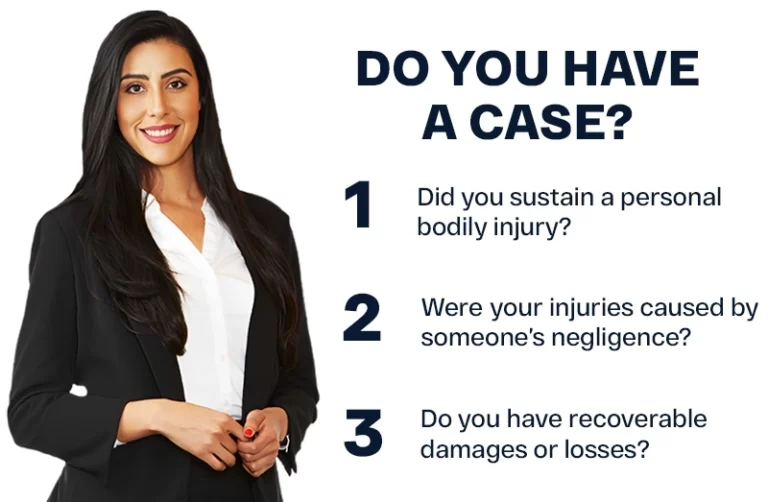Table of Contents
April marks Sexual Assault Awareness Month, a pivotal time to shed light on sexual violence, honor survivors’ resilience, and encourage meaningful societal change. Whether you’re a survivor, a family member, or an advocate, this month calls on us all to foster understanding, offer support, and become active participants in prevention efforts. For survivors, seeking justice can be a crucial part of the healing process. Pursuing a personal injury claim against a perpetrator or negligent party can provide financial compensation for damages like medical expenses and emotional trauma, as well as a sense of empowerment and accountability. Understanding your legal options is essential for reclaiming your voice and rights.
If you’re unsure what to do next after an assault, know that resources are available. The sexual assault attorneys at Arash Law can review your situation, answer your questions, and explain the legal options that may apply. If you’re considering legal action or wondering whether you may need a personal injury lawyer, our team is available to provide guidance.
Now, let’s explore the history of Sexual Assault Awareness Month, gain a deeper understanding of sexual assault, learn about its impact on survivors and their families, and discover actionable strategies for support, prevention, and pursuing justice.
A Brief History Of Sexual Assault Awareness Month
Sexual Assault Awareness Month (SAAM) was officially designated in April 2001, though its foundations extend back several decades. The fight against sexual violence gained momentum during the civil rights era of the 1940s and 50s, with Black women and women of color leading efforts to address both race-based and gender-based violence. The 1970s saw the creation of the first rape crisis centers and events like “Take Back the Night,” further raising awareness and supporting survivors.
By the 1980s and 90s, advocacy expanded nationally, culminating in the landmark Violence Against Women Act (VAWA) of 1994. This law emphasized prevention and survivor support by funding investigations, prosecuting violent crimes, requiring restitution, and letting survivors file civil lawsuits when prosecutors chose not to pursue criminal charges.
Before Sexual Assault Awareness Month officially launched, people already recognized April for week-long observances focused on raising awareness of sexual violence. The passage of VAWA marked a critical turning point in these efforts.
In 2000, the National Sexual Violence Resource Center (NSVRC) collaborated with coalitions to establish SAAM, choosing the teal ribbon as its symbol. Initially focused on awareness, SAAM campaigns began incorporating prevention strategies in the mid-2000s, addressing how individuals and communities can work to stop sexual violence before it occurs.
Today, SAAM continues to evolve, creating resources for diverse audiences, including parents, coaches, faith leaders, and Spanish-speaking communities. With its dual focus on awareness and prevention, SAAM remains a vital campaign, advocating for education, action, and a future free from sexual violence.
Understanding Sexual Assault: Definitions And Scope
Sexual assault encompasses any sexual contact or behavior that occurs without explicit consent. It includes, but is not limited to:
- Rape and attempted rape.
- Unwanted touching or fondling.
- Forcing someone to perform sexual acts.
- Sexual coercion through threats or manipulation.
- Sexual abuse of children or vulnerable adults.
These violations fundamentally breach an individual’s rights to safety, bodily autonomy, and personal dignity. The legal definitions may vary slightly by state, but all recognize sexual assault as a serious crime with profound consequences for survivors.
Understanding consent is central to addressing sexual assault. It must be:
- Freely given
- Reversible
- Informed
- Enthusiastic
- Specific
Easily remembered as “FRIES,” an acronym created by Planned Parenthood.
Consent cannot be obtained through coercion or from someone incapacitated by alcohol, drugs, or other factors that impair judgment. According to the National Sexual Violence Resource Center, consent means actively agreeing to participate in sexual activity. It involves:
- The right to change your mind at any point, even after an activity has begun.
- Clear agreement for each specific act, since saying yes to one thing doesn’t mean saying yes to everything.
- Consent for one situation doesn’t carry over to another. It must be given every time, no matter the context or familiarity.
Educating communities about these principles of consent is essential for prevention efforts and supporting survivors.
Survivors may have the right to seek justice and pursue compensation for physical, emotional, and psychological harm. It’s essential to recognize that sexual violence can affect people of all genders, ages, ethnicities, and backgrounds. Recognizing these rights is important in supporting survivors and holding perpetrators accountable.
The Impact On Survivors And Families
Survivors of sexual assault often endure deep emotional, psychological, and physical effects. These may include:
- Post-traumatic stress disorder (PTSD)
- Depression and anxiety
- Sleep disturbances
- Trust and relationship issues
According to the most recent data from Rape, Abuse & Incest National Network (RAINN):
- Sexual assault occurs every 74 seconds in the U.S., according to RAINN.
- 1 in 5 American women and 1 in 38 men have experienced an attempted or completed rape in their lifetime, according to the CDC.
- Rates are even higher for marginalized groups — transgender individuals face sexual violence nearly four times more often than cisgender individuals.
Each survivor’s healing journey is uniquely personal and often involves complex psychological, emotional, and sometimes physical recovery processes.
RAINN also reports that:
- Research indicates that 94% of survivors experience PTSD symptoms within two weeks of sexual assault.
- Around 30% still report symptoms nine months later.
Meanwhile, family members and loved ones often experience what psychologists call “secondary trauma,” grappling with feelings of helplessness, guilt, anger, or even disbelief. Societal stigma, misinformation about sexual assault, or uncertainty about how to provide appropriate support may complicate these responses.
Support from friends and family plays a vital role in a survivor’s healing journey. Remind the survivors in your life that they don’t have to face it alone.
Raising awareness and breaking the silence around sexual assault is crucial — not only for empowering survivors but also for strengthening the support network around them. Ending the stigma starts with education and compassion.
How To Support Survivors
Providing support to survivors of sexual violence is one of the most meaningful ways to stand against this pervasive issue. You can make a lasting difference in a survivor’s healing journey by offering compassion, understanding, and practical assistance. Here are ways you can help:
Listen And Believe
Creating a safe space for survivors begins with compassionate listening without judgment. When a survivor chooses to share their experience:
- Allow them to lead the conversation and share what they’re comfortable with.
- Validate their experience with simple but powerful statements like, “I believe you,” “This was not your fault,” or “I’m here for you.”
- Avoid asking for unnecessary details or questions that might suggest blame (“Why were you there?” or “What were you wearing?”)
- Practice patience. Healing isn’t linear, and having someone who consistently believes them can help rebuild the trust that may have been profoundly damaged.
Offer Resources
Survivors often feel overwhelmed and unsure where to go for help. You can support them by sharing crisis hotlines, support groups, therapy options, or legal resources. A sexual assault counselor can help them process emotions, while attorneys can guide them through legal options.
Respect Their Journey
Healing from trauma is personal, and every survivor’s journey is different. When considering a personal injury case, it is important to respect their choices, whether they move forward, seek help, or take time to process. Avoid pressure and focus on offering support as they decide what’s best for them.
Educate Yourself
Learning about trauma and survivors’ struggles shows genuine empathy. Understanding how sexual violence affects mental health, relationships, and daily life helps you offer better support. You can read, attend workshops, or use resources from survivor support organizations.
Caring For Your Well-Being
Being there for a family member or friend after a traumatic experience can be intensely emotional and, at times, overwhelming. When you’re closely connected to a survivor, their pain can feel very personal — and that’s normal. To be a steady source of support, caring for your well-being is essential.
Secondary trauma, or the emotional stress that comes from hearing about another person’s trauma, is real. Many loved ones experience it while trying to be there for someone they care about.
Taking care of your emotional health isn’t a sign of weakness or distance but an act of love. Here are some ways to take care of yourself while supporting your loved one:
- Talking to a counselor or therapist can help you process your emotions and give you tools to support the person you care about.
- Set healthy boundaries to protect your own emotional space.
- Consider joining a group for people who are close to survivors.
- Making space for activities that calm and ground you.
By taking these steps, you send a powerful message of support to survivors and contribute to a culture prioritizing understanding, compassion, and accountability. Together, we can help create a world where survivors feel heard, validated, and empowered to heal at their own pace.
Prevention Strategies And Community Engagement
Preventing sexual assault requires communities to come together and take intentional, proactive measures to create safer environments for everyone. It involves education, advocacy, and challenging harmful norms at every level of society. Here’s how individuals and organizations can play an active role in prevention efforts:
Educate Communities
Knowledge is the foundation of prevention. Comprehensive education programs have shown measurable success in reducing sexual violence rates. The CDC’s STOP SV technical package identifies education as a key prevention strategy with proven effectiveness. Here’s how communities can implement effective educational initiatives:
- School-Based Programs — Implement age-appropriate consent and healthy relationship education starting in elementary school and continuing through college.
- Workplace Training — Develop comprehensive policies and regular training sessions beyond compliance to foster respectful environments. Focus on specific scenarios employees might encounter and provide clear reporting procedures.
- Bystander Intervention Programs — Train community members to recognize warning signs and safely intervene in potentially harmful situations.
- Media Literacy — Help people critically analyze media messages that normalize sexual violence or unhealthy relationship dynamics, empowering them to recognize and challenge harmful narratives.
By investing in evidence-based education programs, communities build the knowledge base necessary for accountability, respect, and a sustainable culture of consent.
Challenge Harmful Norms
Start conversations and speak out against the language and behaviors that perpetuate sexual violence. Call out victim-blaming narratives, such as questioning someone’s clothing choices or actions, and challenge outdated gender stereotypes that reinforce power imbalances. Encourage open discussions about consent and respect in relationships to help normalize healthy behaviors and dismantle harmful societal expectations.
Promote Safe Environments
Support policies that promote safety in workplaces, schools, and public spaces. Provide training to help organizations handle harassment or assault reports effectively. Promote clear reporting systems and accountability to create safe, respectful environments. Encourage zero-tolerance policies for harassment to build inclusive cultures.
Work With Advocates And Lawyers
Work with advocacy groups, nonprofits, and legal experts who support sexual assault survivors. These organizations can help push for changes like stronger laws and better access to resources and justice. They also offer education, training, and tools to support community efforts.
Preventing sexual assault is a shared responsibility that requires ongoing commitment and collaboration. Together, we can build a future where respect, safety, and accountability are the norm, not the exception. Every action, no matter how small, contributes to a broader cultural shift toward ending sexual violence.
Resources And Organizations
If you or someone you know has been affected by sexual assault, numerous specialized resources are available to provide support, guidance, and advocacy. Help is available 24/7, regardless of when the assault occurred.
Immediate Crisis Support:
- RAINN (Rape, Abuse & Incest National Network)
- Hotline: 1-800-656-HOPE (4673)
- Online Chat: online.rainn.org
- Website: rainn.org
- TTY: 1-800-810-7440 (for hearing impaired)
Education and Prevention Resources:
- National Sexual Violence Resource Center (NSVRC)
- Website: nsvrc.org
- Prevention Tools: nsvrc.org/prevention
- Training Resources: https://www.nsvrc.org/search/node?keys=training%20resources
Specialized Support:
- 1in6 (Support for male survivors)
- Website: 1in6.org
- 24/7 Chat Support is available on their website.
- FORGE (Support for transgender and gender non-conforming survivors)
- Website: forge-forward.org
- Strong Hearts Native Helpline (For Native American and Alaska Native survivors)
- Helpline: 1-844-762-8483
- Website: strongheartshelpline.org
Local Resources:
Many communities have sexual assault response teams (SARTs), rape crisis centers, and other local organizations providing counseling, support groups, medical advocacy, and legal assistance. To find resources in your area, visit RAINN’s local service provider database.
Proper guidance can make all the difference if you’re considering legal action. Many people ask, “Do I need a personal injury lawyer?” While not required, consulting with one may help you better understand your rights, the claims process, and the options available for your situation.
Frequently Asked Questions About Sexual Assault Awareness Month In California
Why Is April Recognized As Sexual Assault Awareness Month In California?
April is nationally recognized as Sexual Assault Awareness Month, and California supports this observance through statewide awareness campaigns, educational initiatives, and survivor support programs. The state’s legal framework, including provisions under the California Penal Code and the California Victim Compensation Board, reinforces the importance of SAAM by promoting prevention and protecting the rights of survivors.
What Legal Rights Do Sexual Assault Survivors Have In California?
In California, survivors of sexual assault have the right to file criminal charges, pursue civil lawsuits, and access compensation for medical bills, therapy, lost wages, and other related damages. California law also allows survivors to seek restraining orders, request confidential address programs, and benefit from extended statute limitations in certain instances.
How Can I Support Sexual Assault Awareness Month In California?
Support SAAM in California by attending local advocacy events, donating to California-based victim support organizations, sharing legal resources, and encouraging survivors to explore their legal rights. You can also help raise awareness about California’s legal protections for survivors and how they can access justice.
Together, Let’s Create A Safer Future
Sexual Assault Awareness Month is a time to honor survivors, raise awareness, and promote lasting change. However, the effort to prevent sexual violence and support survivors continues year-round. Every conversation, act of support, and step toward education plays a role in creating safer, more informed communities.
At Arash Law, we understand that healing from sexual assault is personal and complex. California personal injury attorneys can provide guidance to survivors who want to understand their legal rights, offering support in a trauma-informed and professional environment.
If you or someone you love has experienced sexual assault, know that you’re not alone — and that legal support is available when you’re ready. Our attorneys listen without pressure and work at your pace, offering:
- Free, confidential consultations.
- Guidance on legal options and support systems.
- Clear, honest communication about your rights.
- A survivor-centered approach focused on your comfort and empowerment.
We can help explain potential paths for seeking justice or compensation while keeping your well-being throughout the legal process. You can call us at (888) 488-1391 for a free, confidential initial consultation.












